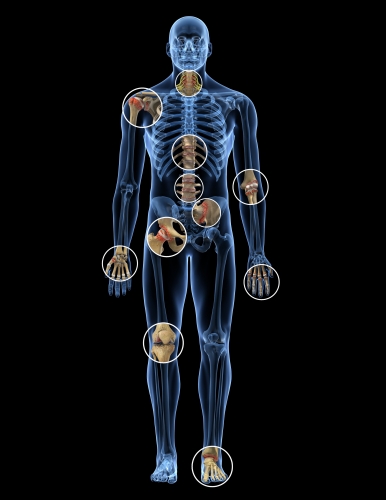The article was professionally consulted by BSCK I Nguyen Thi Phi Yen, Head of Palliative Care Unit, Vinmec Times City International Hospital
Different types of cancer cause a lot of pain both mentally and physically for the patient, bringing a lot of trouble to the patient’s family, especially those with terminal cancer. Therefore, it is important to pay attention to the issues of palliative care for terminal cancer patients when the patient enters the most painful stage.
Cancer often causes a lot of pain both mentally and physically for the patient, bringing a lot of trouble to the patient’s family, especially in the late stages of life.
1. General note: the goal is “comfort care”
Maintain basic care for patients such as bathing, washing, oral hygiene, toilet hygiene, changing gas, clothes, … for the patient. Medical staff and caregivers need to keep the patient’s body and bed clean. Give the patient a quiet, clean, fresh and comfortable space. For patients in bed for a long time, extra care should be taken to prevent complications of necrosis, pressure ulcers and other superinfections. If the patient is awake, put the patient in the position they feel most comfortable, such as resting a pillow under the head, under the knee or shoulder, and awkwardly lying on the side. The patient’s room must be clean, ventilated, well-lit, avoid so that the dark room scares the patient. Food for the patient must be liquid, soft, small quantity, eat many meals a day, if the patient cannot eat, feed the patient with a nasogastric tube or intravenous fluids or eat according to the patient’s needs. For patients who are still awake, nurses are often there to comfort, listen and share the patient’s feelings. Do not say things about the patient’s illness for the patient to hear. Be empathetic and responsive to the patient’s emotional needs, respecting their religion, beliefs, and spiritual requirements at the time of death (if possible).
2. Nutritional care
The organ function of patients with terminal cancer is often weakened, poor appetite as well as poor digestion. At this point you need to pay attention to the combination of foods. Give the patient foods that are easy to digest, non-stimulating, and the temperature should be moderate. Avoid fried foods that are high in fat. For patients who often vomit, it is necessary to report to the doctor depending on the condition to give the patient anti-emetics.
Besides, for the care of patients with terminal liver cancer, it is not advisable to add a lot of protein to the body, but to eat foods with high natural sugar content such as bananas to maintain energy for the patient. Moreover, green vegetables with fruits and milk for cancer patients are very necessary foods.
Cancer patients with cirrhosis should process bland foods to limit the amount of salt entering the body that is harmful to the patient.

3. Pain relief care
In the final stage of cancer, pain is a common symptom and also the thing that patients fear the most. The pain will seriously affect the patient’s activities, sleep and especially the mood. In addition to pain relievers, doctors and family members also need to regularly talk to and encourage patients to think of positive things or regularly read newspapers and books to help patients disperse their attention. Encourage the patient to manage their own pain.
To relieve pain, it is necessary to instruct the patient to lie in a comfortable position to relieve pain.
When coughing increases pain, instruct the patient to place his hand over his chest when coughing to relieve pain. Enhance sleep, relieve patient anxiety. Take pain relievers as ordered.
If the patient coughs with a lot of sputum, the sputum turns from white, milky white to yellow, it is necessary to report to the doctor for sputum sampling and testing. If the patient coughs with blood and sputum, tell the doctor to use hemostatic medicine.
4. Psychological care
When patients learn that they have a serious illness, many people will fall into a state of despair and make the general situation worse
Some people accept the truth and still be optimistic. live longer than those who fall into a state of fear and dare not to face it. Therefore, the influence of loved ones on patients is very important. The psychological relief for them is a rather difficult and persistent job day by day. Caregivers must always comfort the spirit at all times. Encourage the sick person to be able to do what they like or do with or help them when they need it.
Patients with terminal cancer often have very pessimistic psychology, anxiety, fear, despair, if not promptly resolved these psychological problems can lead to patients suffering from depression. Emotions make care and treatment more difficult.
Medical staff and carers need to regularly visit, encourage and comfort patients for peace of mind in treatment. Pay attention to the patient’s psychological development to detect abnormalities. Explain the patient’s questions so that the patient is not worried.
5. Address of palliative care for terminal cancer patients
Palliative care unit, Internal Oncology Department, Center for Oncology – Radiation Therapy, Vinmec Times City International Hospital is one of the reliable facilities in the treatment and palliative care for cancer patients. letters. With a team of doctors and nurses who are experts in the treatment and palliative care of cancer patients, it will help the life of terminal cancer patients become lighter and more meaningful.

Reference<https://www.vinmec.com/en/news/health-news/things-to-do-in-palliative-care-for-late-stage-cancer/?link_type=related_posts



